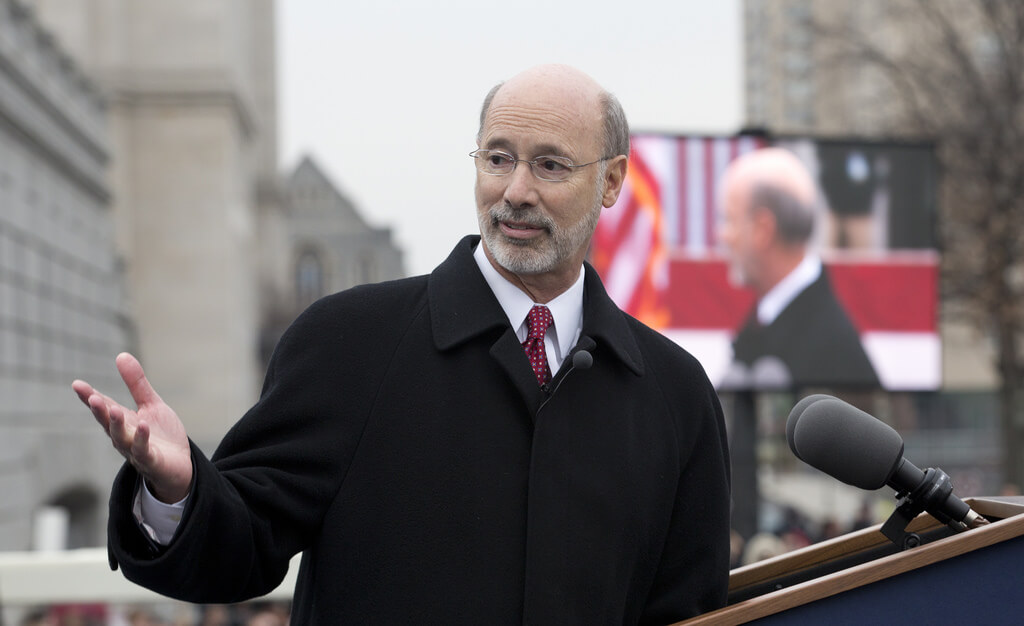Laws are changing in Pennsylvania: Wine and beer is now legally sold in grocery stores, marijuana is grown for medical use and the current gambling policies are opening the door to more casinos and online sites.
The Keystone state, already benefiting from funding thanks to the casino industry, is now betting that adding more opportunities in the Commonwealth will generate even more funds ($200 million that is) for the state’s bulging budget.
The Pennsylvania Gaming Control Board announced that a special meeting will take place on January 10, 2018 to auction the first 10 new satellite casino licenses. Governor Tom Wolf approved legislation on October 30 that opens the door for Pennsylvania (joining Delaware, Nevada and New Jersey) to license more mobile and online gambling. Pennsylvania will auction 10 new casinos that will feature a maximum of 750 slot machines (costing $7.5 million) and 30 gaming tables (costing an additional $2.5 million). It’s important to note that the miniature gambling operations could only be managed by existing licensed operators and must be located a minimum of 25 miles from a current casino.
House Bill 271, as it is formally referred to, will create 10 mini-casinos, allow selective truck stops to operate video gaming terminals (VGTs), and allow airport passengers gamble on their mobile devices. It would also open the door to fantasy sports and online gambling from any computer, phone or mobile device statewide. Bill 271 will give the Pennsylvania lottery system a boost by permitting consumers to purchase tickets online (assisting the state’s senior citizen population).
Recent reports indicate that Pennsylvania’s casinos are second only behind Nevada in generating more gross revenues than any other state in America. Pennsylvania currently has 12 casinos including Harrah’s, Hollywood Casino and Mount Airy Casino Resort. However, this is a controversial amendment due to the 25 miles buffer zone restrictions that keeps any new casinos from being located too close to existing ones.
Although the legislation is doesn’t make everyone happy, the expansion will be instrumental in raising money to help fill the state’s overwhelming $2.2 billion annual budget deficit. The additional casinos are expected to generate $230 million a year in new revenues thanks to taxes and licensing fees. Leaders of both parties have been working for more than four months to pass a budget stalemate, without success. One naysayer, Democrat Steve Carter sums it up this way, “If you pass this bill, you will see an explosion of gambling in Pennsylvania like you’ve never seen before.” “We will become a gambling state without parallel.”
In addition to funding the budget deficit, Wolf and other legislatures are banking on funds from these gambling ventures to pay for property tax rebates, local government treasuries, development projects and institutions. So as some consider alcohol, marijuana and gambling negative forces in American culture, these three changes may be the answer to a budget that has crippled the Pennsylvania economy…or at least that’s the gamble they are worth taking.







